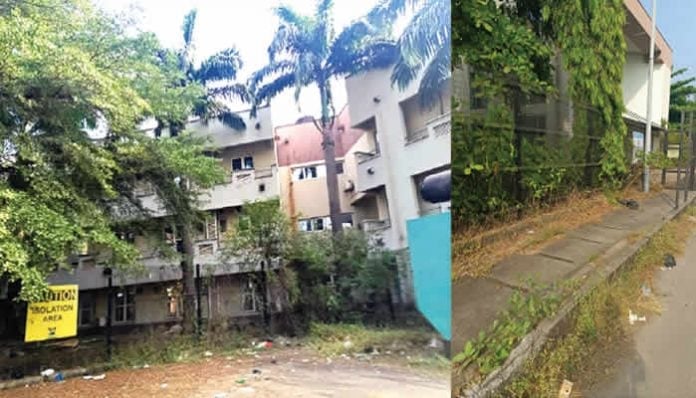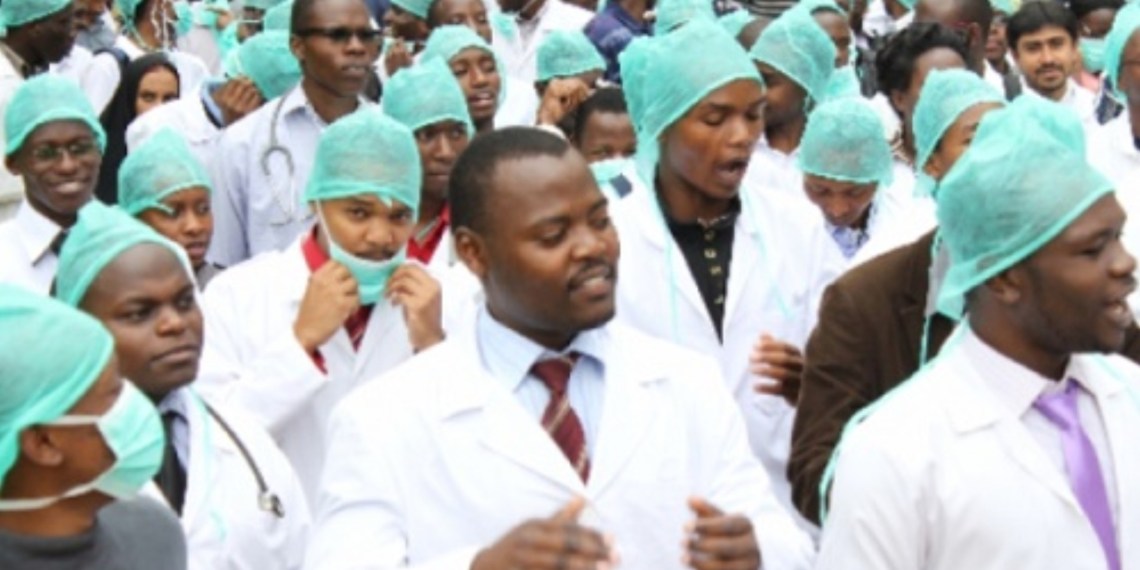The Lagos State Government has re-purposed its N5.6 billion Cardiac and Renal Centre at Gbagada General Hospital, turning the once-abandoned medical facility into new academic offices and tutorial lecture rooms.
This decision aims to address the pressing shortage of healthcare professionals in Lagos by expanding medical education resources across the state.
The transformation was confirmed in a press statement sent to PUNCH Healthwise and signed by Mr. Tunbosun Ogunbanwo, Director of Public Affairs at the Lagos State Ministry of Health.
The conversion comes in the wake of a December PUNCH Healthwise report, which highlighted that the centre—originally inaugurated in March 2015 under former governor Babatunde Fashola to deliver advanced kidney care services—had fallen into disuse and was overrun by weeds after briefly serving as a COVID-19 isolation centre in 2020.
The investigative report, titled “LASG hospitals operate without dialysis machines as N5.6bn renal centre suffers,” revealed the uncertain status of the Centre’s 24 dialysis machines while patients needing life-saving treatment crowded the only six state-run hospitals with functioning machines.
At the time, findings showed just six government hospitals had dialysis facilities, compared to over 20 privately operated dialysis centres in Lagos, leaving a growing population of chronic kidney disease patients in urgent need of care.
As revealed in the statement, Governor Babajide Sanwo-Olu has also authorized expanding the Lagos State University College of Medicine in Ikeja. Additionally, the CACOVID Isolation Centre at the Infectious Disease Hospital will be upgraded to house large lecture theatres and multidisciplinary laboratories.
According to the release, “In an effort to tackle Lagos State’s critical shortage of healthcare professionals, vital medical infrastructure is being handed over to contractors to convert into modern academic environments.
“This includes expanding the Lagos State University College of Medicine, revamping the CACOVID Isolation Centre at the Infectious Disease Hospital into spacious lecture theatres and laboratories, and converting the Cardio-Renal Centre at Gbagada General Hospital into academic offices and tutorial rooms.
“The expansion of these key medical education facilities is designed to meet the surging demand for training spaces and to raise the number of student admissions in vital health disciplines—such as medicine, nursing, dentistry, pharmacy, and allied health— from the current 200 to 2,500 per year over the next five years. This will significantly amplify Lagos’ capacity to train healthcare professionals.”
During the official handover event, Lagos State Commissioner for Health, Prof. Akin Abayomi, underscored that this initiative was a strategic response to a severe workforce shortage fueled by the ongoing emigration of medical professionals.
Prof. Abayomi highlighted that Lagos faces a gap of around 30,000 doctors, along with notable deficits in nurses, pharmacists, dentists, laboratory scientists, and other allied healthcare workers.
The Commissioner further explained that the project is part of a two-pronged approach to mitigate the crisis, as approved by Governor Sanwo-Olu.
“Our first priority is to ramp up the production of healthcare professionals by boosting student numbers, which requires extensive investment in tertiary education infrastructure.
“Under the guidance of Governor Babajide Sanwo-Olu, we’ve approved a phased infrastructure expansion to accept more students in medicine, nursing, dentistry, pharmacy, and allied health sciences. The goal is to increase annual admissions from 200 to 2,500 within five years,” he said.
Prof. Abayomi further noted that proper training facilities, more instructors, and access to a large and diverse patient population are critical for delivering quality education and securing accreditation from regulatory bodies.
“In healthcare, having ample capacity is crucial—we must plan for growing needs rather than risk being underprepared. With expanded infrastructure, we’ll not only train more students but also maintain our accreditation with bodies such as the Medical and Dental Council of Nigeria and the National Universities Commission,” he added.
The expansion will add 1,600 new seats in lecture theatres, 1,600 lab stations, and provide 110 additional offices for academic staff.
To ensure all work meets top industry standards, the Lagos State Infrastructure Asset Management Agency will oversee construction and refurbishment.
Commissioner Abayomi also announced that the facilities are scheduled to be ready for academic use within the next four months.










